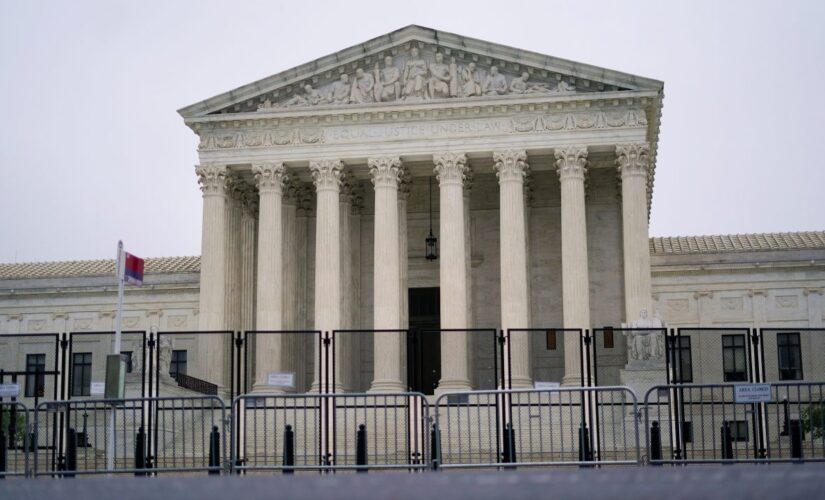NEWYou can now listen to Fox News articles!
The Supreme Court Wednesday issued decisions in two low-profile cases, setting up Thursday as the final day of its term with two blockbuster decisions.
Left for the court to decide are a case on the Environmental Protection Agency’s authority to issue major rules and a second case on whether President Joe Biden must enforce the “Remain in Mexico” policy.
Rulings – or a ruling – on at least one of those cases were anticipated Wednesday, but the court instead issued two minor decisions about the federal government’s criminal jurisdiction on Native American reservations and veteran employment rules.
The Supreme Court has only two major cases left to decide this term.
(AP Photo/Pablo Martinez Monsivais)
The case on veteran employment rules, Torres v. Texas Department of Public Safety, may be Justice Stephen Breyer’s final opinion before he retires at the end of this term.
Breyer wrote a majority opinion joined by Chief Justice John Roberts and Justices Sonia Sotomayor, Elena Kagan and Brett Kavanaugh. The court ruled that Texas was required by federal law to give an Afghanistan veteran who got sick from toxic burn pits his police job back upon returning to the U.S.
JUSTICE CLARENCE THOMAS WON’T BE FIRED FROM GEORGE WASHINGTON UNIVERSITY DESPITE STUDENT OUTRAGE
“Torres asked his former employer, respondent Texas Department of Public Safety (Texas), to accommodate his condition by reemploying him in a different role,” Breyer wrote.
However, a federal law requires state governments to give returning veterans their jobs back, and the court ruled Texas needed to comply with that law.
CLICK HERE TO GET THE FOX NEWS APP
“If a State– or even 25 States–decided to protest a war by refusing to employ returning service members, Congress, on Texas’ telling, would be powerless to authorize private reinstatement suits against those States,” Breyer also said. “The potentially debilitating effect on national security would not matter.”
He continued: “We think it does matter for a simple reason. Text, history, and precedent show that the States, in coming together to form a Union, agreed to sacrifice their sovereign immunity for the good of the common defense.”




